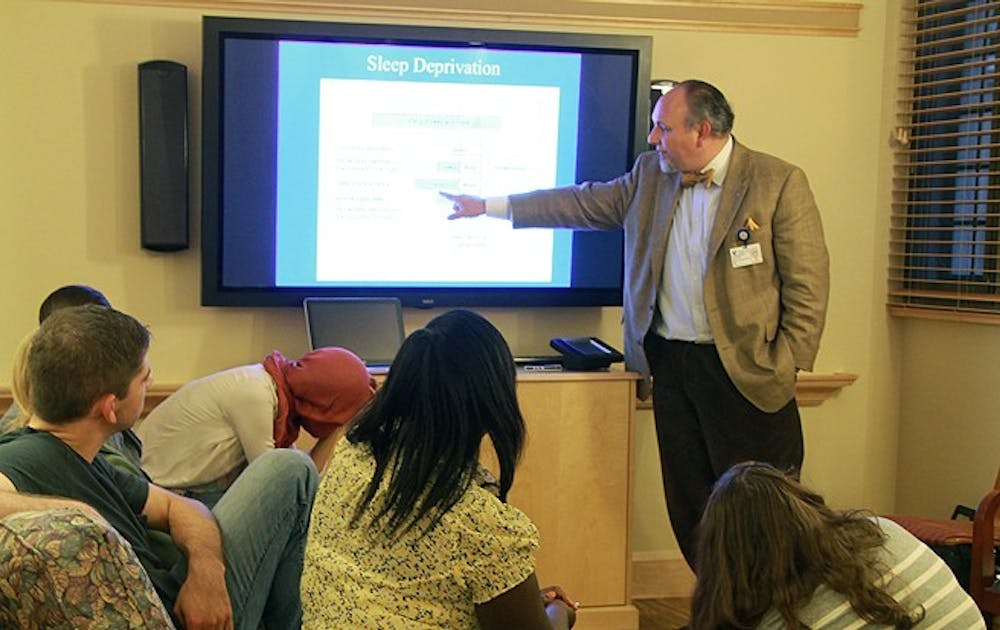Students attended a lecture Wednesday, perchance to dream.
Dr. Xavier Preud’Homme, assistant professor of psychiatry and behavioral sciences at the School of Medicine, discussed the mechanisms of the brain and the role of dreams in sleep at a gathering in Few Quadrangle Wednesday. A necessary precursor to understanding dreams is being able to remember them, so Preud’Homme recommended that people keep a pen and paper handy during sleep so dreams can be recorded upon waking up.
“As you do that, it will change the way you sleep,” he said. “The more you dream, you’ll become more creative but you also will become more tired.”
Writing about dreams will eventually cause the brain to become more aware during dreams and possibly allow for lucid dreaming, a phenomenon in which a person realizes they are dreaming and is then able to control what occurs in the dream. Preud’Homme noted that the more a person dreams—especially lucidly—the less useful sleep will become for rest, because the brain will be in rapid eye movement sleep longer and it will be even more awake and aware. He explained that readings of brain activity during REM sleep are the same as when a person is fully awake.
He said, however, that using a particular theory for interpreting dreams, which is common among psychoanalysts, is counterproductive.
“Your dreams, I think, should not be approached from a Freudian or Jungian canvas,” Preud’Homme said, referring to two of the most influential theorists in psychoanalysis, Dr. Sigmund Freud and Dr. Carl Jung.
Sophomore Patience Wall attended the discussion in order to gain some insight about her dreams and to learn about sleep in general.
“Usually, people assume that if you have a dream then it has a particular interpretation,” she said. “But I know that is not the case, which opens up new possibilities.”
Preud’Homme, whose clinical interests include sleep research and sleep medicine, became interested in psychoanalysis and dream interpretation as an undergraduate in college.
He noted that sleep serves a dual purpose in humans, allowing the brain time to rest but also to review memories, a process which occurs during the REM cycle of sleep.
“Part of why we dream is because we rehearse what happened [to us] in the day,” he said.
Sophomore Ege Yalcinbas, a neuroscience major, observed the discussion as a student of the brain.
“Sleep was one of the topics discussed in Neuroscience 101, so I wanted to get a different perspective on the topic, outside of the lecture setting,” she said.
Preud’Homme said examining dreams can give insight into how people function and can be used as a tool for better understanding oneself as a person. It is particularly beneficial to examine dreams while the brain is still developing, because younger people are generally more inquisitive.
He advised caution, however, when discussing dreams with others.
“[When young, it’s] easy to be influenced by others, so be careful about divulging dreams to someone who may be using it not to help you but to actually gain control over you,” Preud’Homme said.
Get The Chronicle straight to your inbox
Signup for our weekly newsletter. Cancel at any time.

